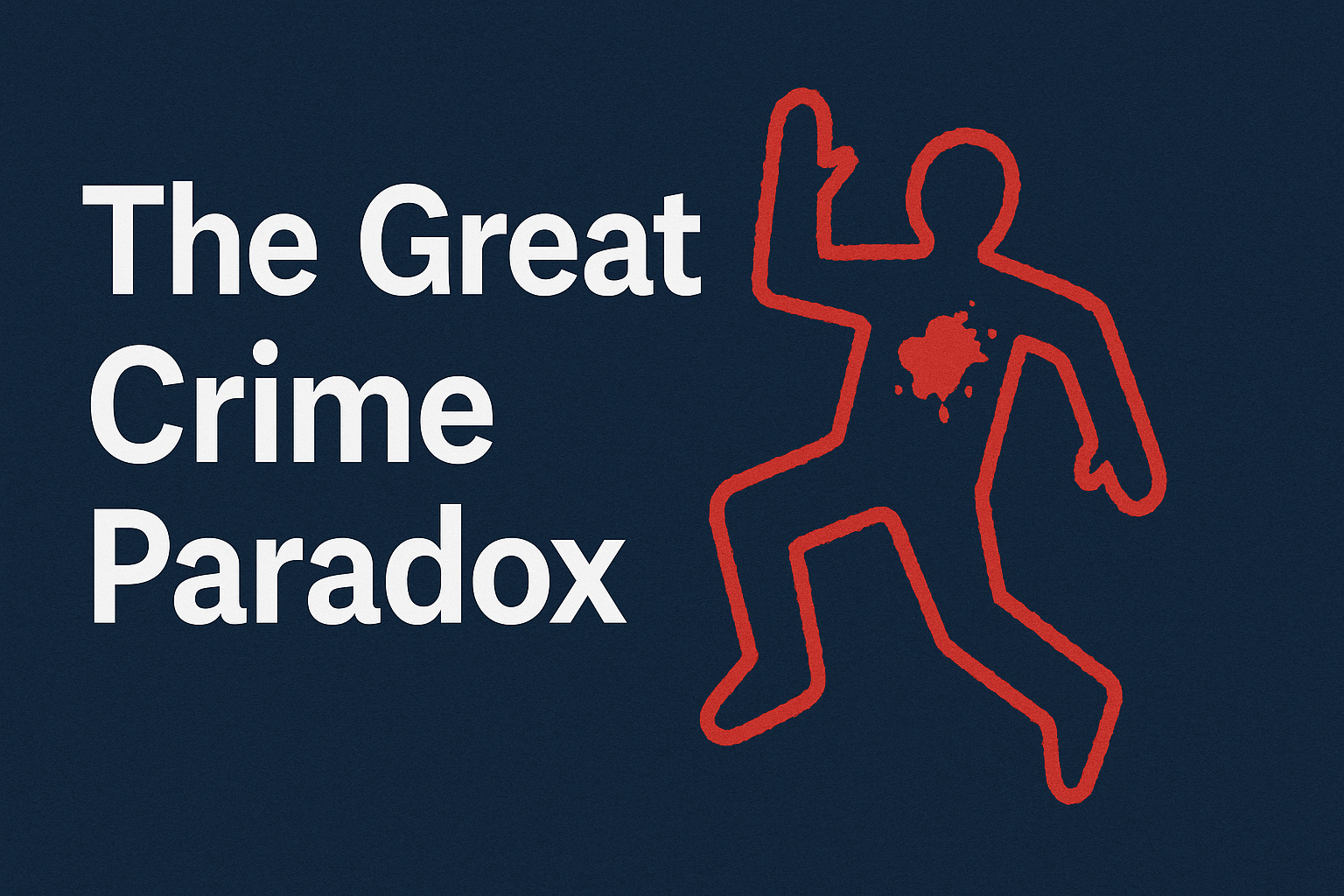The Great Crime Paradox: Public Fear vs. Falling Rates
By Street Staff Writer | August 2, 2025
Across the globe, a puzzling disconnect is gripping societies: crime rates are dropping, yet public fear of crime remains stubbornly high. This paradox—where data paints a safer picture than people’s perceptions—has sparked debates about media influence, political rhetoric, and the human psyche’s response to uncertainty.
Recent statistics tell a clear story of declining crime. In the United States, the FBI’s 2024 Uniform Crime Report noted a 3% drop in violent crime from the previous year, with murders down 11.6%. Similar trends appear elsewhere: England and Wales reported a 6% decrease in violent offenses in 2024, per the Office for National Statistics, while Canada’s violent crime rate fell 2.1%, according to Statistics Canada. Property crimes, like burglary and theft, have also trended downward globally, driven by better policing, advanced security technologies, and aging populations less prone to criminal behavior.
Yet, surveys reveal a starkly different reality in public sentiment. A 2024 Gallup poll found that 63% of Americans believe crime is a “very serious” problem, up from 54% in 2020, despite the downward trend. In the UK, a YouGov survey showed 74% of respondents think crime has risen over the past decade, even as official data contradicts this. Posts on X echo this unease, with users sharing anecdotes of feeling unsafe in cities or citing high-profile incidents as evidence of a “crime wave.”
What’s fueling this gap? Experts point to several culprits. Media amplification plays a big role, with 24/7 news cycles and social media platforms spotlighting sensational crimes. A 2023 study by the Pew Research Center found that violent crime stories dominate local news, often out of proportion to their actual frequency. “If it bleeds, it leads,” quipped one criminologist on X, summarizing how graphic stories stick in viewers’ minds more than dry statistics.
Political narratives also stoke fear. Politicians across party lines often lean on “tough on crime” rhetoric to rally voters, emphasizing isolated spikes in specific crimes—like urban shoplifting or subway assaults—over broader declines. This selective focus distorts public perception, as noted in a 2024 report by the Brennan Center for Justice, which argued that fear-driven policies risk over-policing and misallocated resources.
Psychological factors further widen the divide. Humans are wired to overestimate risks, especially when they feel uncertain about the economy, immigration, or social change. “Fear of crime isn’t just about crime—it’s about what crime represents: loss of control,” said a sociologist quoted in The Guardian. High-profile incidents, like mass shootings or viral videos of street crime, linger in collective memory, overshadowing data showing such events are statistically rare.
The consequences of this paradox are real. Persistent fear erodes trust in institutions, fuels demand for harsher laws, and drives some to arm themselves—ironically increasing risks in some communities. In the U.S., gun ownership surged 14% from 2020 to 2024, per the National Firearms Survey, with many citing personal safety. Meanwhile, businesses in urban areas report declining foot traffic as fear keeps people home, impacting local economies.
Solutions are elusive but not impossible. Experts suggest media outlets balance crime reporting with context, highlighting trends alongside individual stories. Public campaigns, like those in Australia that share local crime stats transparently, have shown promise in aligning perceptions with reality. Community engagement—through neighborhood watches or police outreach—can also rebuild trust and reduce fear, as seen in pilot programs in Toronto and London.
For now, the great crime paradox persists, a reminder that feelings don’t always follow facts. As one X user put it, “Stats say it’s safer, but my gut says lock the door.” Bridging that gap will require more than numbers—it demands understanding the stories we tell ourselves about safety and danger.
What’s your take on crime in your area? Drop us a line at info@street.co.ke or join the discussion.

